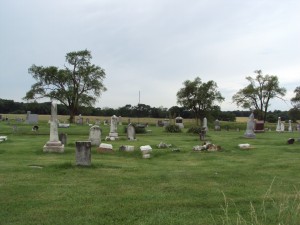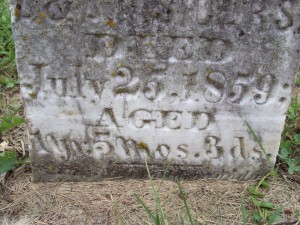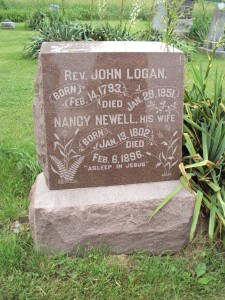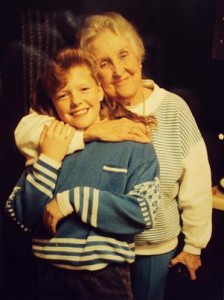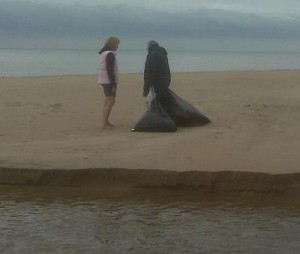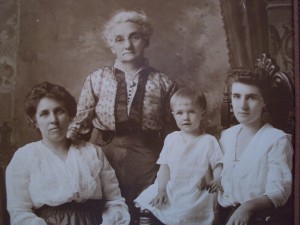 Today I got to do something I’d always wanted to do. While visiting Nate’s only sibling, Ken, in western Illinois, I got to visit two small, country cemeteries. My mother-in-law’s life began in a small farm town less than 100 miles from where Nate and his brother were raised, and we went on a mission to trace family history. Ken’s last visit had been 15 years ago, but he remembered where his relatives were buried, so we started there.
Today I got to do something I’d always wanted to do. While visiting Nate’s only sibling, Ken, in western Illinois, I got to visit two small, country cemeteries. My mother-in-law’s life began in a small farm town less than 100 miles from where Nate and his brother were raised, and we went on a mission to trace family history. Ken’s last visit had been 15 years ago, but he remembered where his relatives were buried, so we started there.
The first cemetery was easy to find, just a quick jog off the main road. The other one, more important because it was located next to the family farm we were also hunting for, eluded us. After a discouraging hour, we spotted an elderly man on his porch. It had been 72 years since Ken’s mother had lived in this farm town. Might he know their family name?
I approached him in as non-threatening a way as I could. “We’re looking for a small cemetery and the Kline farm, close enough to town for little kids to ride ponies to school. It’s an impossible question, but we thought you might know.”
He laughed and invited me into his home to meet his wife who said, “Let’s go next door. Wanda is older than us and has lived here all her life. She’ll know.”
And Wanda did. “The Kline farm is one mile over there,” she said, pointing in a direction we thought we’d already traveled. “But the house was recently torn down. It’s mega-farms around here now,” she said, “one farm gobbling up another.” (We learned this rich soil was currently going for $8500 per acre.)
Ken and I thanked them and drove in the direction of Wanda’s finger-point. Sure enough, there was the cemetery where Ken’s great-great grandfather was buried, a Baptist preacher born in 1793. His ancient headstone had been replaced with a new pink granite one, a mystery to us.
While there, I got my wish to read other headstone stories, finding his children and many grandchildren. Nearly half the cemetery markers were for young children, their few years, months and days carved in stone.
My mother-in-law had ridden her pony past this graveyard every school day in the 1920’s, along with her 4 pony-riding siblings. As Ken and I stood there, we had countless questions, but the answers are now buried, along with his relatives.
God knows them, though, and he keeps accurate books. A baby buried only 1 year, 5 months and 3 days after being born was just as important to him as the rare person who lived to old age. But more significant was the magnitude of his love for each one, none loved more or less than another.
When those buried there stepped into eternity, it wasn’t the length-of-days that mattered but the divine love that brought them to God.
“This is the everlasting covenant: I will always be your God and the God of your
descendants after you.” (Genesis 17:7)

